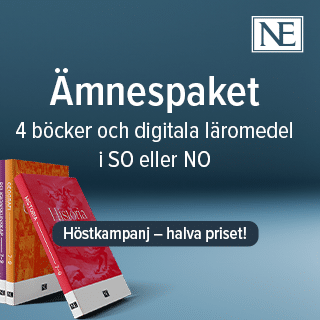Berättelser om omsorg. Omsorgsetikens kritiska potential i skolans värdeförmedlingsuppdrag
Mimmi Norgren Hansson vill med sin avhandling bidra till ökad förståelse av omsorg i elevrelationer i skolan samt det omsorgsetiska analysverktygets användbarhet inom religionsdidaktisk forskning.
Mimmi Norgren Hansson
Docent Niclas Lindström, Umeå universitet. Professor Tomas Lindgren, Umeå universitet. Bodil Formark, Umeå universitet
Professor Arniika Kuusisto, Helsingfors universitet
Umeå universitet
2024-02-16
Abstract in English
From a care ethics perspective, this thesis aims to discuss and conceptualise children’s experiences of care in Swedish compulsory school. I initiate an ethical discussion focusing on the theoretical core of care ethics and exploring how the framework can be used and developed within the aforementioned educational context. The thesis consists of two empirical and two theoretical articles. In the empirical articles, a qualitative approach is employed to interview sixth-grade children about their experiences giving and receiving care within peer relationships in school. The theoretical articles explore the conditions of values education in Swedish schools and the application of the care ethics framework in the context of new moral psychological research. Article I, “Dissonance between liberal and conservative function: an analysis of values education in Swedish schools”, underscores the significance of contextualisation in analyses of values education, emphasising the intricate interplay between societal values and those imparted within educational contexts. It critically evaluates existing theoretical frameworks and approaches, highlighting the need to disentangle values from function and navigate dissonance within diverse value systems. In article II, “Caring narratives from Swedish compulsory school”, a care ethics perspective is employed to analyse caring narratives from pupils in sixth grade, revealing the dynamic roles of caregivers and recipients of care in shaping a reactive care narrative. Partiality’s pivotal role in care dynamics is explored in article III, “The partial care”, stressing its impact on peer relationships in school environments. Article IV, “What can Moral Psychology Contribute to the Understanding of an Ethics of Care?”, delves into recent developments in moral psychology, challenging the care ethics understanding of moral reasoning by acknowledging the connection between rapid emotional responses and deliberate rational thinking. It connects these psychological insights with the ethics of care, exploring the relationship between intuitive acts of natural care and deliberate choices of ethical care in a moral pedagogical context. In synthesising these themes, my thesis contributes to a relational understanding of values education and situates the ethics of care framework within the realm of education. It offers a novel perspective on the interrelationships between values education, critical Religious Education, and the feminist framework of care ethics, enriching the discourse within these subdisciplines.







